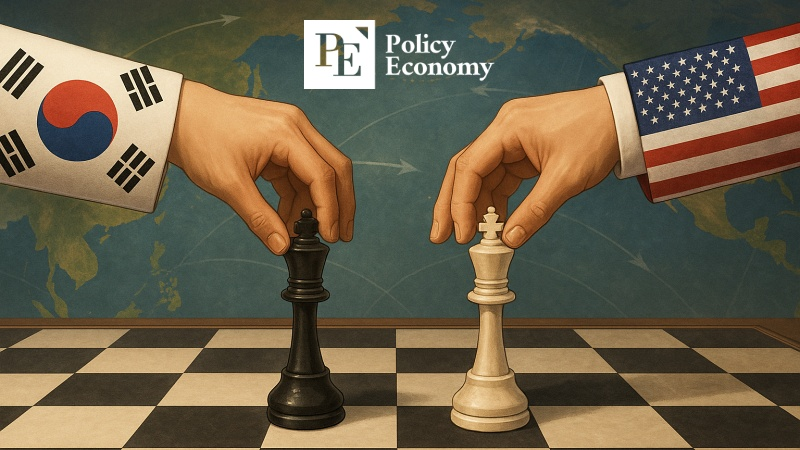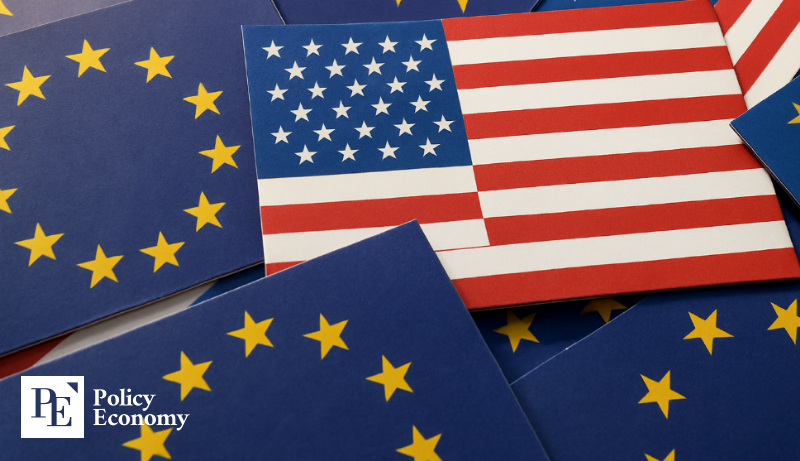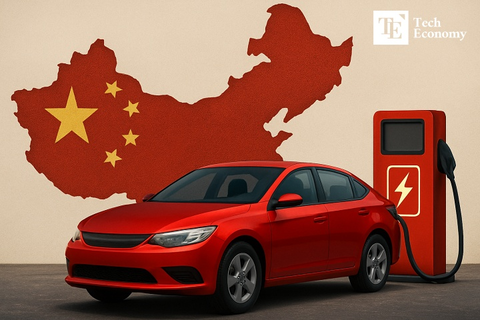No Contribution, No Gain: South Korea Faces Uphill Battle in Tariff Talks
Input
Modified
The U.S. Signals That Allies Must Share the Burden Europe Chooses Alignment Through Critical Minerals Pact Korea Lacks Proactive Government Strategy Despite Strategic Assets

As the United States begins weighing the tangible benefits it receives from its allies based on their contributions to the supply chain, South Korea is struggling to respond effectively despite possessing valuable strategic assets. While Europe has already established a strategic alliance with the U.S. centered around critical metals and successfully led tariff negotiations, South Korea has yet to develop a cohesive trade framework, instead relying on fragmented efforts by individual companies—prompting criticism that the country lacks real negotiating power.
U.S. Demands Clear Burden-Sharing from Allies
In recent trade negotiations, the U.S. has made clear its expectation that partner countries share the burden of economic and supply chain risks. Washington views the era of free-riding as over and insists that each country contribute to the global economy using its own strategic industries. While Korea has long relied on its security alliance with the U.S. to maintain a degree of negotiating leverage, there is growing recognition that this strategy is no longer sufficient.
The inclusion of security issues in tariff talks reflects this shift. Earlier in April, Donald Trump announced a 90-day deferral of planned high tariffs. At the time, he stated, “We station troops all over the world at great expense but receive little in return—Korea is no exception,” signaling that tariff negotiations would be bundled with other issues like defense cost-sharing in a “one-stop” format.
Further, during the tariff suspension period, the U.S. announced plans to reassess strategic supply chains and named Korea as a central partner. This reemphasized Korea’s value not just in manufacturing capability but also as a geopolitically trustworthy partner. At the same time, it clearly underscored the expectation of defined roles—Korea should not expect unconditional goodwill or tariff exemptions.
One of the most likely options under discussion in Korea is the strengthening of supply chains in strategic metals. South Korean companies, including Korea Zinc—the world’s largest nonferrous metals firm—could play a role in Washington’s push to decouple from China. A South Korean government official stated, “Korea and the U.S. are continuing working-level discussions regarding a potential Korea Zinc smelter,” adding that such a project may be included in the final agreement. Nonferrous metals like zinc are high-priority targets for the U.S., as they are difficult to substitute and China dominates their supply.
However, these moves cannot yet be considered part of a cohesive national strategy. Although companies like Korea Zinc are independently reviewing U.S. investments, the absence of a government-led roadmap or coordinated resource diplomacy has prevented these efforts from evolving into a meaningful negotiation framework. Without policy support and diplomatic alignment, experts say, Korea will struggle to secure a firm position as a supply chain partner.

U.S.–EU Partnership Represents Comprehensive Economic Security Cooperation
While Korea scrambles without a clear response, the European Union has moved swiftly to strike a broad-based agreement with the United States on strategic metals like steel, aluminum, and scrap. The two sides aim to strengthen supply chain cooperation in these categories and deepen strategic ties. This deal marks one of the EU’s strongest responses to the Inflation Reduction Act (IRA), America’s industrial policy for domestic protection. It also signals a clear shift from confrontation to coordination.
At a press conference held on the 28th (local time), Maroš Šefčovič, the EU’s Executive Vice President for Trade, stated, “Non-market oversupply is destroying the steel industry,” explaining the motivation behind the metal alliance. Though he did not name China directly, his repeated references to “oversupply” made his target clear. “This cooperation with the U.S. presents a clear roadmap for joint action on steel, aluminum, copper, and their derivatives,” Šefčovič said. “We will take a unified approach to address the economic actors responsible for excess production.”
The U.S.-EU trade deal, including the metals alliance, is also tied to Washington’s broader strategic goal of reasserting dollar dominance. The Biden administration is working to overhaul both supply chains and the global currency order—a dual strategy that depends on institutional coordination with allies. Seen in this light, the agreement illustrates how U.S.-EU relations are evolving into a partnership focused on economic security that spans trade, finance, and resources. It is emerging as a new model for strategic alliances grounded in supply chains.
Strategic Production Capacity Could Be a Bargaining Asset
The U.S. is steadily advancing its supply chain–based trade strategy, and upcoming tariff talks are expected to hinge on differentiated benefits based on each country’s contribution to strategic sectors. Rather than unilateral tariff reductions, the U.S. is likely to reward countries that make tangible contributions to supply chain stability. This approach mirrors former President Trump’s transactional view of diplomacy.
This is also why frustration and criticism are mounting over South Korea’s lack of progress in negotiations with the U.S. So far, Korea’s response has been limited to isolated cases of technology exports or plans for U.S.-based manufacturing. These piecemeal efforts fall short of forming a coherent trade strategy or supply chain framework at the national level. Given Korea’s considerable production capabilities in strategic sectors like semiconductors and secondary batteries, many experts argue that Seoul should have proactively proposed specific contributions and leveraged them to take the lead in conditional negotiations.
Ultimately, the U.S. is shifting the basis of its trade negotiations from superficial tariff reductions to substantive supply chain participation. If Korea fails to act swiftly, it risks losing not only negotiating power but also the material benefits of cooperation. In an environment where technological prowess alone is insufficient, Korea urgently needs a detailed roadmap outlining how, when, and to what extent it will contribute to critical supply chains.





















